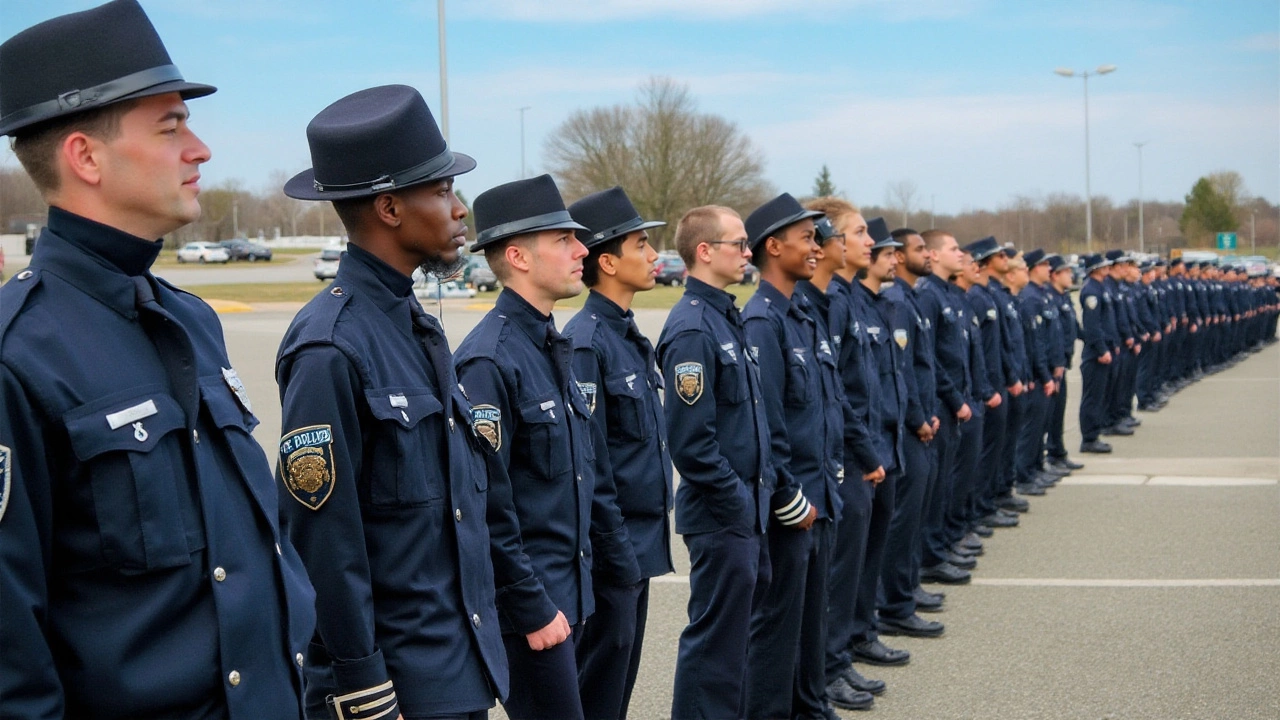How Long Is Police Academy Training? Duration, Schedule & What to Expect
Thinking about joining a police force? One of the first questions on your mind is probably: how long does the academy actually take? The answer isn’t a one‑size‑fits‑all number – it depends on the state, the specific department, and whether you’re in a basic recruit class or an advanced specialty track. In this guide we break down the most common timelines, what fills each day, and the little tricks that help you stay on schedule.
Typical Length of Police Academy Programs
Across the UK and many US states, the standard police academy runs between 12 and 20 weeks. For example, Virginia’s academy runs a 20‑week (about five‑month) program, while many UK forces run a 12‑week intensive course. The curriculum is packed with classroom learning, fitness drills, firearms practice, and scenario‑based evaluations.
Here’s a quick snapshot of typical phases:
- Orientation (1‑2 weeks): You get your gear, meet instructors, and learn the code of conduct.
- Law & Procedures (3‑5 weeks): Criminal law, traffic rules, and report writing take center stage.
- Physical Training (throughout): Daily PT sessions, defensive tactics, and endurance runs keep you fit.
- Firearms & Tactical Skills (2‑3 weeks):** Safe handling, shooting accuracy, and tactical movement are covered.
- Scenario Simulations (final 2‑3 weeks): Real‑world role‑plays test your decision‑making under pressure.
Most academies finish with a final assessment week that decides whether you graduate as a certified officer. If you pass all the tests, you’ll get your badge and start on‑the‑job training, which can add another few weeks of field experience.
Key Factors That Can Change the Timeline
While the above gives a solid baseline, several factors can stretch or shrink the schedule:
- Part‑time or reserve programs: Some departments offer weekend or evening classes that can take 6‑12 months to complete.
- Prior experience: If you already hold a relevant certification (e.g., military police), you might qualify for an accelerated track.
- Academic performance: Failing a written test or missing a fitness benchmark typically means repeat sessions, adding days or weeks.
- Specialized units: Training for K‑9, SWAT, or marine patrol often adds separate modules after the basic academy.
- Local regulations: Some states mandate extra hours for legal updates or community‑ policing modules.
To keep your timeline on track, stay on top of fitness goals, treat every classroom session like a test, and ask instructors for clarification as soon as something feels fuzzy. Remember, the academy is designed to be tough because the job is tough – the more prepared you are, the smoother the ride.
Finally, budgeting your time matters. Most recruits work part‑time jobs or rely on academy stipends, so plan your finances around a 3‑5 month cash flow gap. Use the downtime between modules to rest, study, and keep up with physical training – this prevents burnout and helps you finish strong.
Bottom line: expect anywhere from 12 to 20 weeks for a full‑time police academy, with extra weeks for specialty training or part‑time schedules. Knowing the breakdown, staying disciplined, and asking for help when needed will keep you moving forward without surprise extensions.




